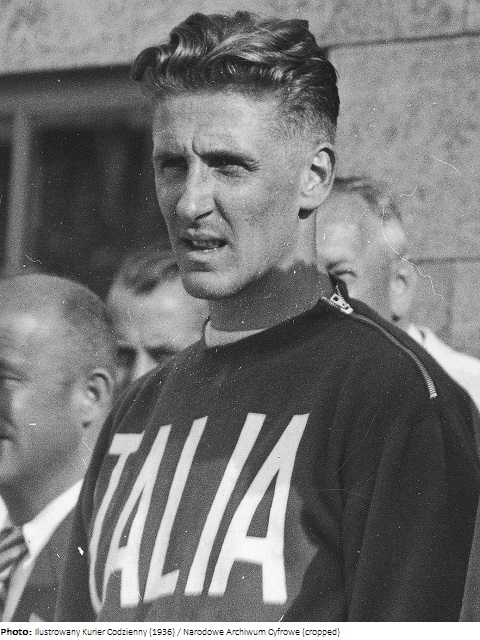
| Roles | Competed in Olympic Games |
|---|---|
| Sex | Male |
| Full name | Giorgio•Oberweger |
| Used name | Giorgio•Oberweger |
| Born | 22 December 1913 in Trieste, Trieste (ITA) |
| Died | 14 October 1998 (aged 84 years 9 months 23 days) in Roma, Roma (ITA) |
| Measurements | 189 cm / 82 kg |
| Affiliations | Giovinezza |
| NOC |  Italy Italy |
| Medals | OG |
| Gold | 0 |
| Silver | 0 |
| Bronze | 1 |
| Total | 1 |
Giorgio Oberweger was an athlete, technician, judge, teaching, manager and one of the most interesting personalities in Italian and International athletics between the 1940s and the 1960s. The son of a civil servant of the former Austro-Hungary administration, he began athletics as a discus thrower and hurdler with the club Giovinezza Trieste. He was named to the Italian national team in 1933 and set his first national record with 46.437 at Trieste on 29 October in the discus. He eventually set 10 national records in the discus, and was the first Italian to better 50 metres with 50.317 on 29 June 1936 at Bologna. At the Berlin Olympics a month later, Oberweger took the bronze medal with 49.23 behind the Americans Ken Carpenter and Gordon Dunn.
In 1937 Oberweger returned to Giovinezza Trieste after earning a law degree at the University of Bologna. He collaborated with newspapers and magazines and became a top assistant to the Italian technical coach, the American Boyd Comstock. Oberweger started an import-export business and, for a short while, worked as a lawyer. In 1938 he placed second in the discus at the European Championships. Later that year he ran 14.7 in the 110 hurdles for an Italian national record. In 1938, Oberweger improved his national record to 51.49.
In World War II Oberweger was a fighter pilot, flying over England and Africa, and he was awarded a Military valour silver medal for bravery. In 1942 he moved to Roma for military work, where he became the manager at the Bruno Mussolini Club, one of the most important athletics clubs in Roma, which was dedicated to the son of the Duce who had died in August 1941 in an aviation crash.
After the war Oberweger began a small textile factory, the Venjulia, along with another Olympian Ottavio Missoni. In 1946 Oberweger was appointed head coach of the Italian National team, serving until 1961, when he became vice-president of the Italian Athletics Federation. At the 1948 London Olympics he competed in discus but did not advance from qualifying, but he was responsible for coaching Adolfo Consolini and Giuseppe Tosi to gold and silver in the discus. Oberweger earned 17 international caps.
Oberweger was again Italian coach from 1964-68, also serving during that time as a member of the IAAF Council and President of the International Commission on race walking. Until 1972 he also worked also at the Italian Central School of Sport. Two years after his death, the journalist Augusto Frasca published a book in his memory entitled Infinito Oberweger (Endless Oberweger).
Personal Best: DT – 51.49 (1938).
| Games | Discipline (Sport) / Event | NOC / Team | Pos | Medal | As | |
|---|---|---|---|---|---|---|
| 1936 Summer Olympics | Athletics |  ITA ITA |
Giorgio Oberweger | |||
| Discus Throw, Men (Olympic) | 3 | Bronze | ||||
| 1948 Summer Olympics | Athletics |  ITA ITA |
Giorgio Oberweger | |||
| Discus Throw, Men (Olympic) | 15 r1/2 |